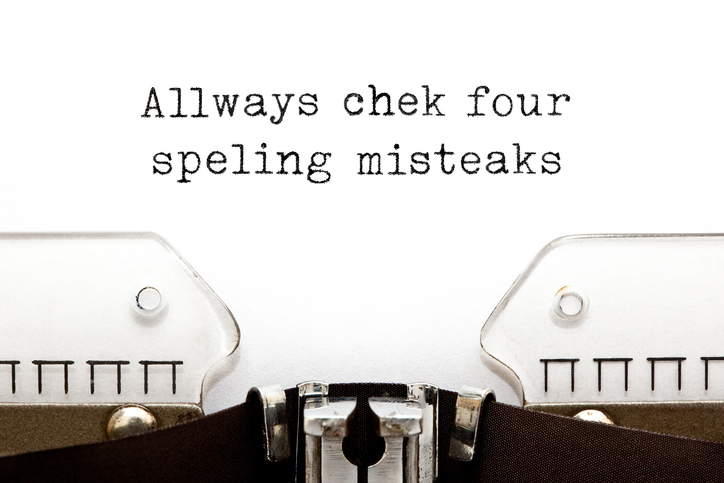Attract Clients You Love with Consistent, Stylish Marketing
February 24, 2020Demystifying the Paper Selection Process
February 28, 2020Avoid “Grammatical Embarrassment” by Sidestepping 3 Common Errors
Can you spot the mistakes in this paragraph?
Melissa was excited about her son’s swimming ability. This fall, she asked, “Would you like to join the swim team”? Sammy was thrilled about the idea, accept for one thing: the tight swimsuits. “Why do I have to wear spandex”, he complained, “I’m all ready the fastest swimmer in the pool”!
Grammar can be painful.
Make A Fresh Start
Even after years of writing, there are grammatical errors that impede us all. For some, it’s punctuation. For others, it’s word selection. And when you repeat the same mistakes, bad habits get harder to break.
This year, make a mental note to dodge those potholes! Here are three mistakes to avoid in your writing:
1. Incorrect Apostrophes
Apostrophes indicate possession for nouns and letter omissions in contractions.
Generally, singular possessive apostrophes come before the ‘s’ and plural possessives apostrophes come afterward, like this:
Singular Possessive: Jim’s hat or Mike’s coat
Plural Possessive: Several years’ work or many students’ books
Apostrophes do not indicate possession for personal pronouns, so it is incorrect to add an apostrophe to “it” or “who” when designating ownership.
- Incorrect: Who’s bike is this?
- Correct: Whose bike is this?
- Incorrect: The flower lost it’s petals
- Correct: The flower lost its petals
When contractions are used, apostrophes replace the missing letters. For example:
- Correct: “It’s looking like great weather for planting flowers.”
- Incorrect: “Its looking like great weather for planting flowers.”
- Correct: “Who’s going to help me prep the soil?”
- Incorrect: “Whose going to help me prep the soil?”
Punctuation and Quotation Marks
Do punctuation marks go inside or outside quotation marks?
This one can be tricky because British and American English have different rules (which is why you sometimes see discrepancies). Here are two basic American guidelines:
1. Sentence-ending commas and periods always go inside quotation marks.
Remember, if you are INSIDE the U.S., commas and periods go INSIDE the quotation marks. Like this:
- “I fell asleep,” Paul said.
- Paul awoke and complained, “I had a bad dream.”
2. Question marks and exclamation marks can vary.
If they apply to the quoted material, these marks belong inside the quotation marks. If they apply to the whole sentence, they go outside.
Each of these sentences is correct:
- Mary asked them, “Where should we eat?”
- Do you think Mary is hungry enough for the “Impossible Whopper”?
- Chandra texted Michael, “Should I bring dinner?”
- Chandra looked in her purse and exclaimed, “I have a $50 gift card!”
- The dog leaped off the couch when he heard Chandra say, “I’m bringing pizza”!
Words That Are Easily Confused
Words that are commonly misused include these pairs:
Affect/Effect
Rule of Thumb: “Effect” is usually a noun, while “affect” is typically a verb.
- Incorrect: The text had a negative affect on my mood.
- Correct: The test had a positive effect on my grade. This positively affected my mood!
They/Their
Rule of Thumb: “There” refers to a place, while “their” indicates possession.
Example: We’re going to love it there—I heard their breadsticks are the best!
Accept/Except
Rule of Thumb: “Accept” typically includes, while “except” usually excludes.
Example: I was proud to accept an award (though everyone except the dog received one).
Assure/Ensure
Rule of Thumb: To “assure” is to make someone confident of something; to “ensure” is to guarantee that something actually happens.
Example: Though Mike assured me that the dog would not escape, I locked Scout’s kennel to ensure he stayed put.
Farther/Further
Rule of Thumb: “Farther” refers to physical distance and “further” denotes metaphorical (or figurative) lengths or advancement.
Example: I want to run farther next time, but need to progress further in my training to grow my endurance.
While grammar debates can make your head spin, hopefully, these tips can alleviate confusion. Do small things with excellence, and you’ll make big strides!

